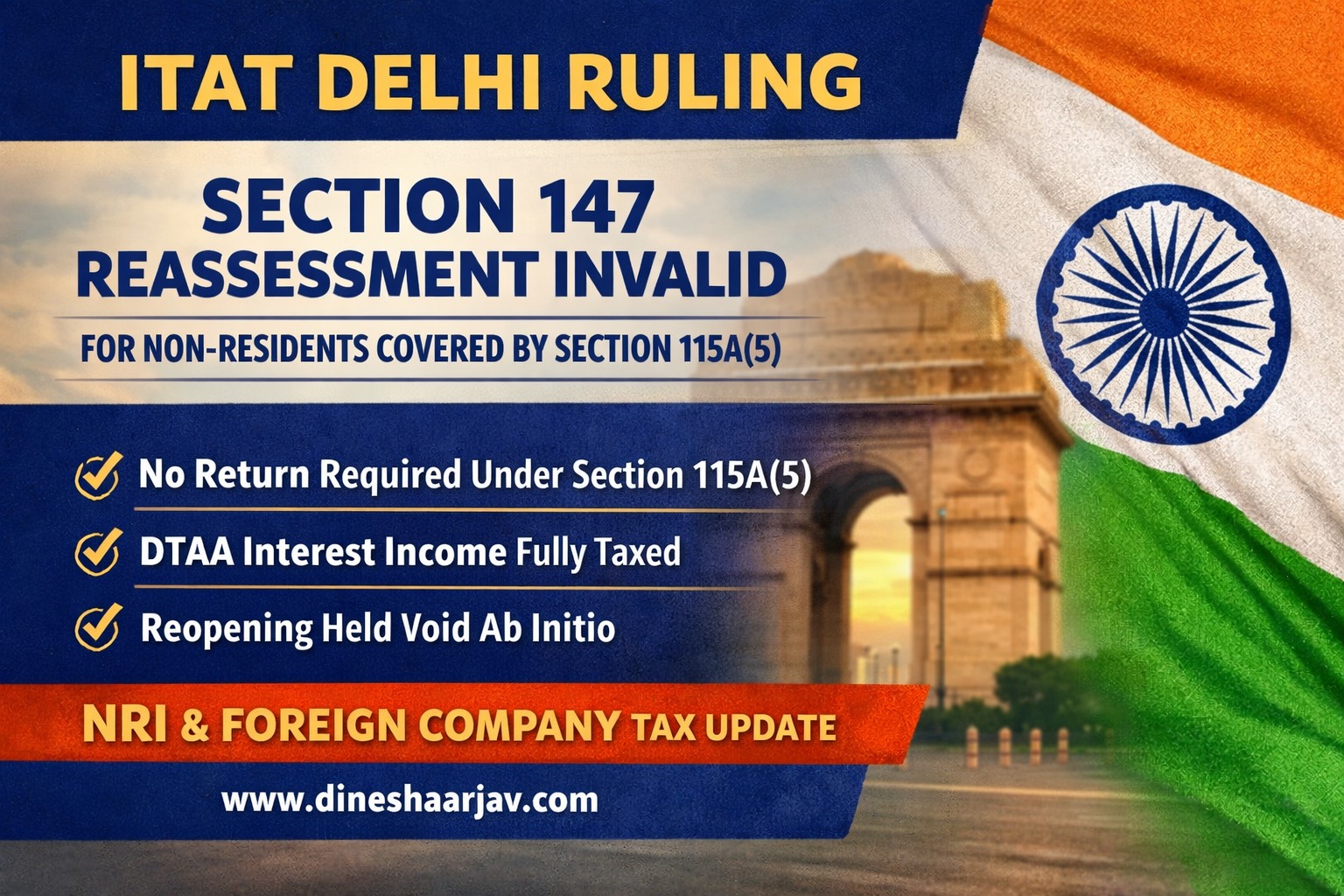 WhatsApp
WhatsApp
 Call Us
Call Us
 Email Us
Email Us
 Whatsapp Community
Whatsapp Community

For many Indians living in the United States, moving back home after years abroad is a big decision — emotionally and financially. However, one critical aspect often overlooked during this transition is the US Exit Tax.
If you are a US Green Card holder planning to return to India or revoke your Green Card, understanding the Exit Tax implications is crucial to avoid unexpected tax liabilities.
At Dinesh Aarjav & Associates, we assist NRIs and US residents in managing their cross-border tax filings, compliance, and repatriation planning. Here’s a detailed guide on what the US Exit Tax means, who it applies to, and how you can plan your exit smartly.
The US Exit Tax (Internal Revenue Code Section 877A) is a tax levied on certain individuals who give up their US citizenship or long-term Green Card status.
Introduced in 2008, this tax treats you as if you sold all your global assets on the day before expatriation, and you must pay capital gains tax on the hypothetical profit — even if you haven’t actually sold anything.
This is why proper tax consultation before surrendering your Green Card is essential.
You may be considered a “covered expatriate” if you meet any one of these conditions at the time of expatriation:
If you fall into any of these categories, you will be required to calculate and pay the US Exit Tax.
When you relinquish your Green Card or US citizenship, the IRS assumes that you sold all your assets at fair market value a day before expatriation.
The capital gain from this deemed sale is then subject to US tax — after an exclusion amount (USD 821,000 for 2024).
Assets that may be taxed include:
For returning Indians, this means both Indian and US investments could be impacted — making tax filing and compliance guidance critical.
Many Indian-origin US residents who decide to revoke their Green Card to settle permanently in India are unaware that they may trigger the Exit Tax.
If you have held your Green Card for 8 out of the last 15 years, you are classified as a long-term resident, and surrendering your Green Card is treated as expatriation for tax purposes.
Before you start the process of returning to India, it is strongly advised to:
At Dinesh Aarjav & Associates, we specialize in guiding clients through these complex steps, ensuring tax-efficient transitions when moving funds from the US to India.
Certain individuals may avoid being labeled as “covered expatriates.” For example:
Proper documentation and prior planning are essential to qualify for these exemptions.
At Dinesh Aarjav & Associates (DAA), we provide comprehensive US-India tax consultation and filing services for individuals planning to:
Our expert team of Chartered Accountants and international tax professionals helps clients mitigate tax exposure, ensure IRS compliance, and make the transition back to India seamless.
The US Exit Tax is complex and can significantly impact your wealth if not handled correctly.
Whether you are a US citizen giving up citizenship or a Green Card holder moving back to India, early NRI tax planning is the key to minimizing risks.
Reach out to Dinesh Aarjav & Associates today for a personalized tax consultation and expert guidance on exit tax, compliance, and repatriation planning.






